- Kultur
- Massacre of October 7th
»Your feelings and beliefs don’t go together all of a sudden«
Israeli artist Noa Arad Yairi on the trauma of October 7th and her paintings that deal with it

Noa Arad Yairi, while I was visiting the Jewish Museum in Vienna this September, I stumbled upon some of your works from the painting series »October 2023«. They are part of the exhibition »The Third Generation. The Holocaust in Family Memory«. In these paintings you are grappling with what happened on October 7th and afterward. Can you describe how you experienced those days?
It was a total shock, of course, for me and for everyone else. Nothing had prepared us for this. It took some time and watching the news to really understand what had happened as we were in dismay and disbelief. The scale of the massacre was hard to grasp – so many people were killed. It was also shocking to us that the people in the Kibbuzim and the festival who were attacked had been calling the police and reporters for help – and during the first hours hardly anyone came. It took a long time until the army arrived. That shook us to the core because we had taken the ability of the country to be there and respond immediately for granted. We had assumed that we could rely on the army and the police to protect us. Additionally, for some people in the left-oriented community, to which I belong, it is hard to reconcile the fact that most of the people who were murdered and kidnapped where leftists, many of them activists for peace between Israelis and Palestinians.
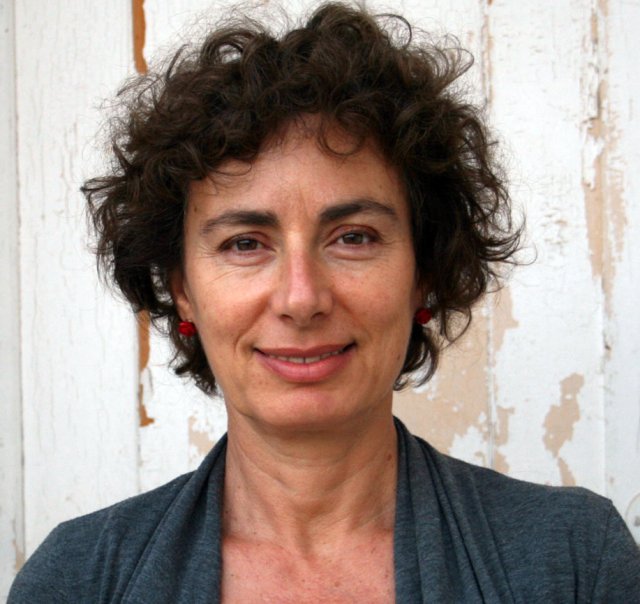
Noa Arad Yairi was born 1960 in Israel and is an Jerusalem-based contemporary artist working mainly in the media of sculpting, installation and painting. Arad Yairi studied visual arts at the NB Haifa School of Design (1984–1988). She is an initiating member of the artists’ venture HaMiffal in Jerusalem. Arad Yairi teaches a course of multi-layered artistic research of place and is a professional advisor in a course at the Bezalel Academy of Art and Design. Her work has been exhibited in museums and galleries in Israel, Europe and in the US.
The Hamas doesn’t seem to make any distinctions.
In the beginning I asked myself: was it all I vain? All the demonstrations against our right-wing government, all the volunteering … everything. It was astonishing. And because these are people like you, you feel like you could be one of them. My son could have been one of the festival-goers, I could have been someone who was kidnapped. So yeah, it was a huge shock. The immediate reaction everyone around me had was to check their doors. Is it easy for someone who wants to kidnap or murder you to get in? We didn’t feel safe anymore. All our beliefs – that there is someone over there, in Gaza, who we can talk to – had been violently crushed. I remember that in the beginning we were thinking: What should be done now? We felt so helpless. Something had to be done, we felt. I mean we did not want to bomb Gaza, but we also didn’t want to sit there quietly and beg: Oh, please don’t do it again!
How did the situation evolve from that point?
After a while your consciousness and political awareness begin to resurface, and you think: No, I’m not for that, I’m not in favour of bombing them all. Although what they did was awful. I mean, how can you justify hitting an 85-year-old woman who is cuffed on a motorcycle? No matter who she is. This is what they did to peace activist Yocheved Lifshitz. She and her husband Oded (84) – who is still in captivity and may be dead by now, were part of an organization that drove sick people from Gaza to be treated in hospitals in Israel. What the hostages suffered was unimaginable. I tried to avoid watching the videos but I did see some pictures and snippets of videos of what happened to them. I didn’t dig further because it was too much. But sometimes you couldn’t hide from it. These really brutal images popped up on social media, for example, the video of how the lifeless body of Shani Louk (23) was thrown on a pick-up truck and women, men and children were beating her with sticks. When you see something like that you have a gut reaction. You may have your beliefs, but your feelings and your dismay tell you other things. It’s like if your friend would have been raped, your immediate gut feeling may make you wish that all men would die. And then your consciousness sets in and you know this is not the right solution.
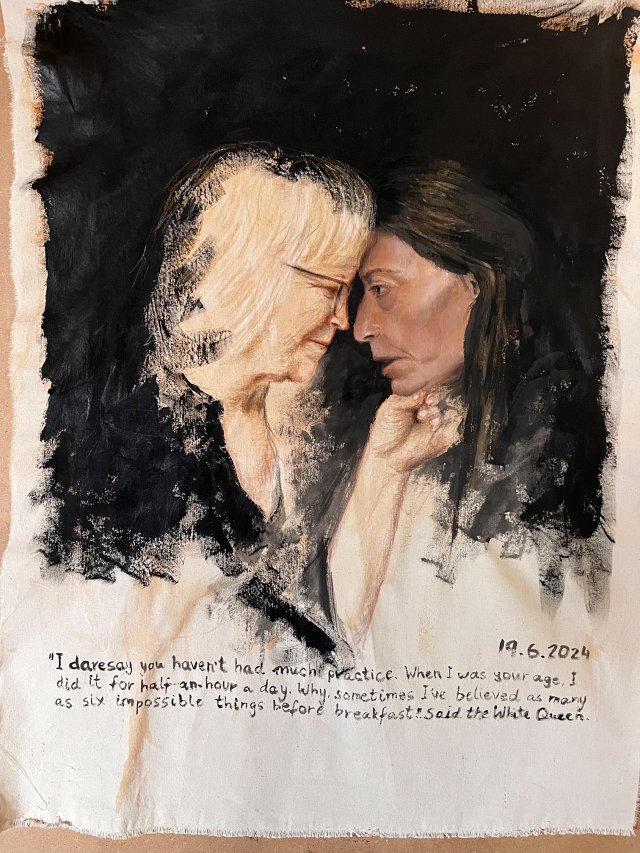
When did you begin to deal with these themes in your art?
It took me a week or perhaps a bit longer. It was when my son, who is 28 and a musician, was called up to serve in the army as a medic that I returned into the studio and started to paint. I needed a release for my feelings and a way to process the shock. I kept thinking: Who knows where he’s going and what he will see? I was worried not only for his physical safety but also for his mental well-being. I knew that as a medic, though not in combat, he might witness things that would change him profoundly. Currently, he has been drafted again.
How did your process of painting go? How did you decide on form and materials?
I usually paint with oil colours on canvas, but for the pieces related to October 7th I used acrylics on paper. I had a jar of black acrylic paint in my studio, and I just started to smear black onto the paper. All the while I was painting, I thought this would never leave the studio. My idea was to »vomit« all my fear onto the paper. I felt that oil paint was too refined, too indulgent in a way. Oil colours carry so much history, both culturally and personally for me. I had never really painted with acrylics up to this point. It was more like writing in a diary rather than writing poems for publication. As for the images, my focus wasn’t on depicting reality but on conveying my emotions. Some of the depictions stem from photographs I had seen of people searching for their sons, daughters, parents who were at the festival or in the Kibbuzim while the massacre took place. Some of the photographs captured them after they received the awful news about their loved ones. I felt these images expressed what I was experiencing. So I started painting.
There are two paintings in the series that don’t show any humans. Can you tell me about them?
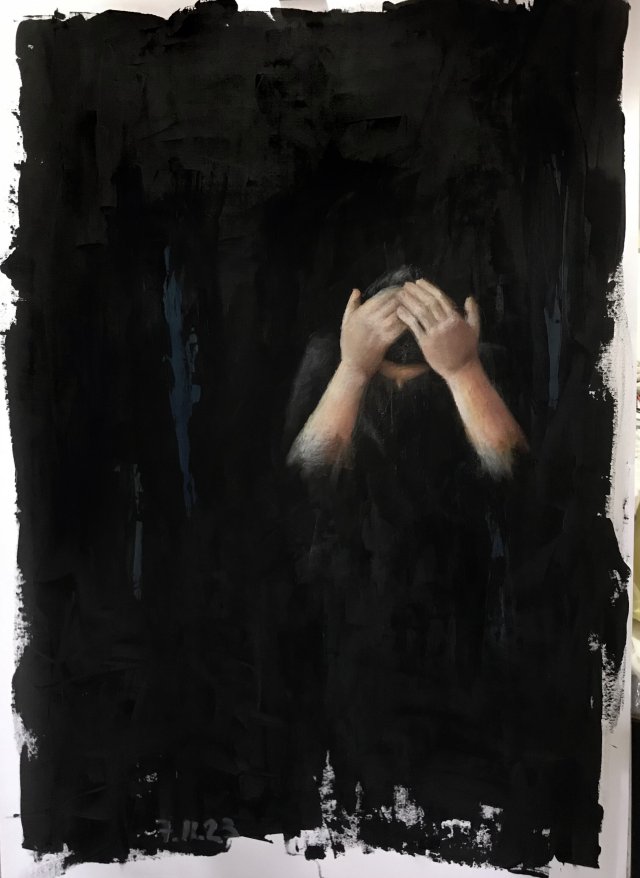
One of them shows a sculptural artwork I once saw in a museum’s warehouse. I had taken a picture of it. When I looked at this picture after the massacre had happened, I suddenly associated it with a hostage. I think when you are traumatised, everything you see gets filtered through that trauma, even if it wasn’t originally connected. The other painting depicts a backyard, a flat ribbed roof with two objects hanging from it, and darkness behind them. For me, this image conveys a sense of something open and penetrable, a feeling of vulnerability and neglect.
Are you still painting with black?
It took me a while, but just a month ago I told myself I had to stop with the black. It was too much. I felt a bit guilty for leaving it behind because I felt it’s also sort of a betrayal to have stopped it, because there are still hostages in Gaza, and the war between Israel and the Hamas is as violent as ever. The death toll in Gaza is enormous. And now there’s another war, between Israel and Hezbollah, while Iran and the Houthies in Yemen are launching missiles. It is horrific. Recently, I went on holiday to Crete with my partner because I felt I really needed to breath. I know I was fortunate to be able to do this, to take this time off. The constant war and the demonstrations have worn us out. Every Saturday we protest against Benjamin Netanyahu and his right-wing governments, sticking a piece of tape on our shirts with the number of days the hostages have been held captive. We call for an end to the war weekly, and it goes on and it’s getting worse and worse. Sometimes I feel like the rightists in this country are my foe too. They are ruining everything our parents built here and trying to erase everything I believe in.
Do you feel like some people, primarily of the left, have changed their political views after October 7th?
Yes, and not necessarily for the better. But you can perhaps understand how they got there. Hamas says it out loud: »We aim to do this again and again.« They truly don’t want us Jews or Israelis here. So it’s hard to maintain faith in peace, I must say. However, there are still enough people who think differently and participate in the weekly, sometimes biweekly demonstrations. We are thousands, not just hundreds. Yet many people are leaving the country, everybody is checking their second passports, if they have them. It doesn’t feel certain that Israel will exist in the future.
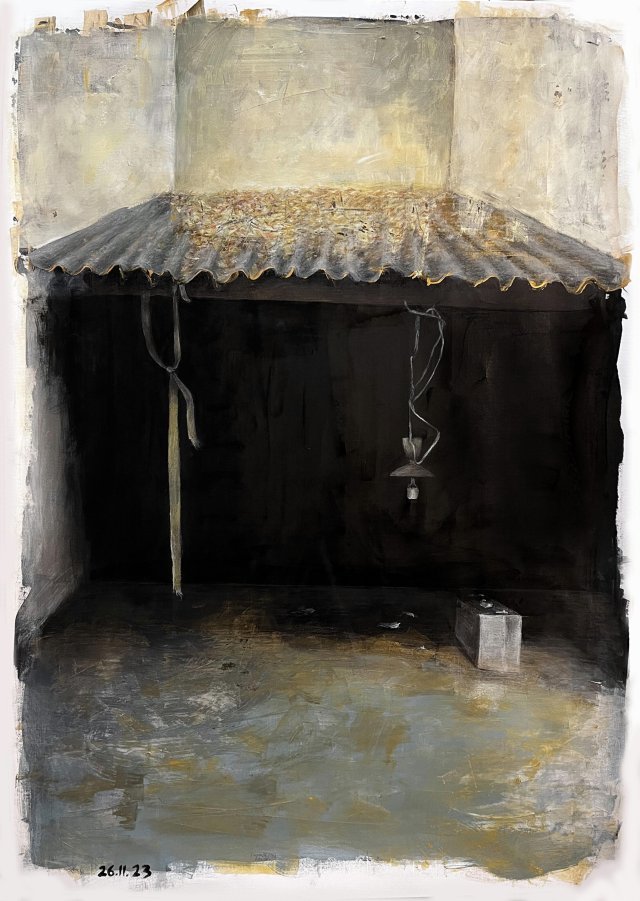
A friend of mine, who is an Israeli artist, has been living in Germany for a while now. A couple of years ago he applied for German citizenship, and he was granted it because his Romanian grandmother was persecuted by the Nazis. So now he is also German.
Yes, these stories feel like a dark twist of history – Jewish people coming back to Germany from Israel. It’s a very sad irony. But aside from protecting your life, having another citizenship can also benefit you as an artist if you are from Israel.
Can you elaborate?
A couple of years ago – even before the war started – it became increasingly difficult for Israeli artists to work internationally, due to campaigns like BDS (Boycott Disinvestment Sanctions), which call for a boycott of all cultural exchange with Israel. After the 7th, it suddenly felt as though everything – residencies, curating, teaching, participating in exhibitions – was denied to Israelis. It felt profoundly unjust. I am a member of a Facebook group of Israeli artists and someone there wrote: »Let me know if anyone got into a residency at all« – and it was really no one. All of a sudden all doors were closed. After the war began, groups like Art Not Genocide Alliance, which called for the exclusion of Israel from the Venice biennale, emerged. The ideology behind these formations is often rather simplistic in its radicality. They don’t differentiate. To them all of Israel is bad, everything is wrong there – »from the river to the sea« means erasing all people here. It feels so shallow. Because, you know, in reality politics is not black and white. It never is. Not all Palestinians or Arabs are guilty of the violent crimes that occurred in the South of Israel on October 7th, and conversely, not all Israelis are guilty of the war that Netanyahu wages against the Hamas. I expect of left- leaning people to be more intelligent, more thoughtful in their perspectives. If I believed that such actions might change anything in the government’s political conduct, I might have supported it. Unfortunately I don’t think it does; boycotting the artistic community or academia is irrelevant to Netanyahu and his government.
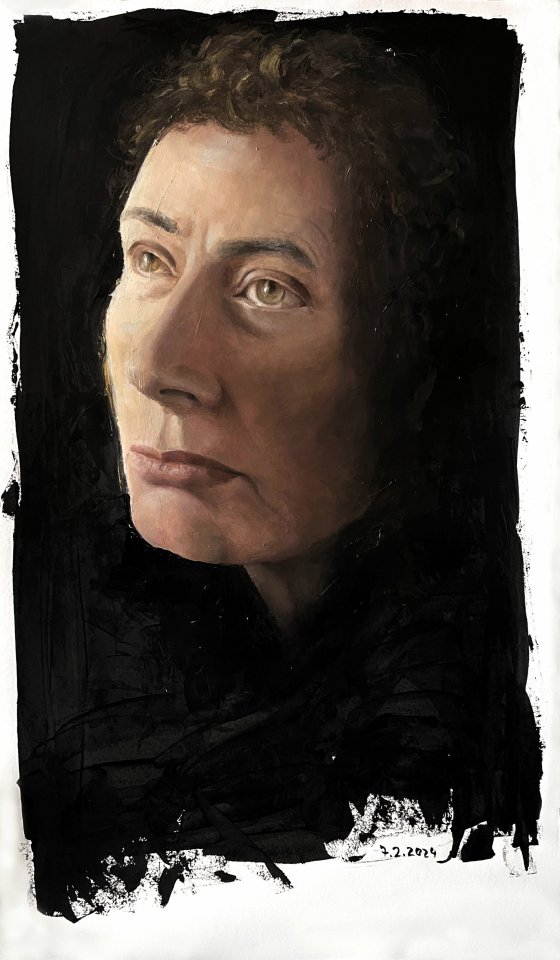
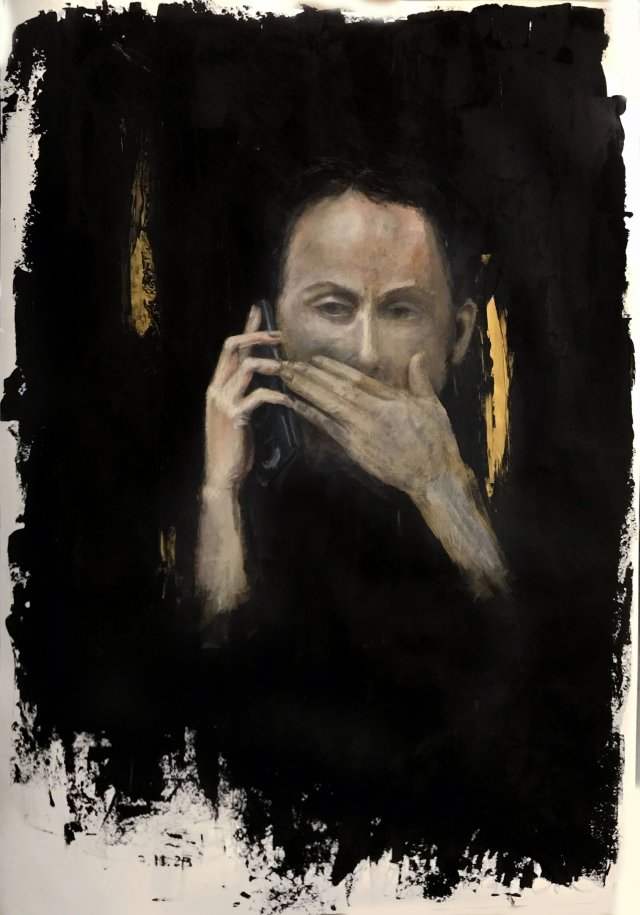
Wir stehen zum Verkauf. Aber nur an unsere Leser*innen.
Die »nd.Genossenschaft« gehört denen, die sie lesen und schreiben. Sie sichern mit ihrem Beitrag, dass unser Journalismus für alle zugänglich bleibt – ganz ohne Medienkonzern, Milliardär oder Paywall.
Dank Ihrer Unterstützung können wir:
→ unabhängig und kritisch berichten
→ übersehene Themen in den Fokus rücken
→ marginalisierten Stimmen eine Plattform geben
→ Falschinformationen etwas entgegensetzen
→ linke Debatten anstoßen und weiterentwickeln
Mit »Freiwillig zahlen« oder einem Genossenschaftsanteil machen Sie den Unterschied. Sie helfen, diese Zeitung am Leben zu halten. Damit nd.bleibt.







